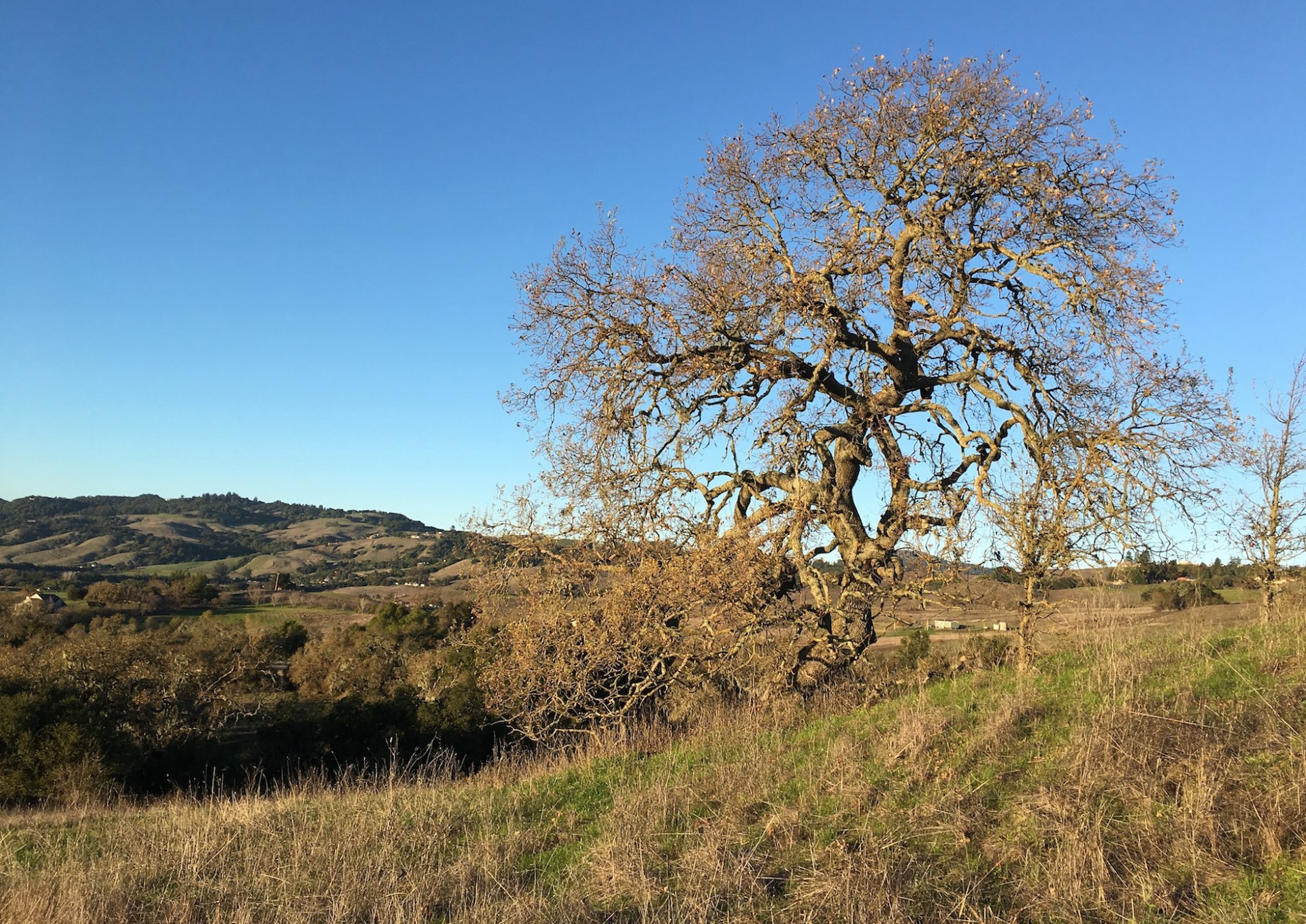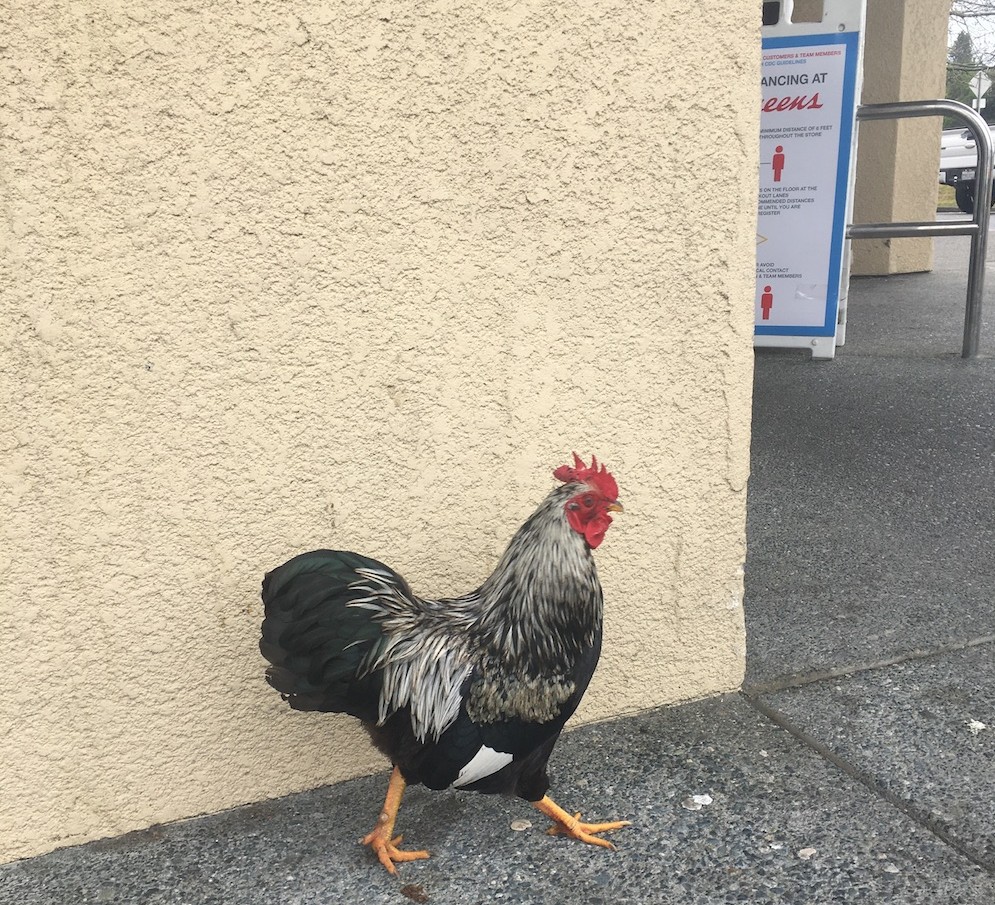Hope in a Changing World: Why I Chose Climate and Society
C+S student Katherine Beem on why she chose to study climate and society.

As many students do, I went home for winter break. Going back to my Northern California hometown of Cotati felt like going back in time. It’s a place that doesn’t change much. The Accordion Festival statue still stood proudly in the park and the local Walgreens parking lot chicken population was thriving as always. It’s a sleepy place, especially compared to Manhattan. Cotati generally doesn’t keep up with the world around it. However, there is one change that stood out to me on this particular visit home: more people were talking about climate change.
Throughout the month home, I made my visiting rounds with friends and family, and I got the same few questions. The main one being “what are you studying?”
The answer is: Climate and Society (C+S). As much as I enjoy C+S, I found that telling people the program name did not exactly help them understand what it is I’m studying. This gave me the opportunity to workshop my description of the program and my motivations for choosing it. Through my talks, I realized that I came to C+S because it feels like a way to take action, and that ability to take climate action gives me hope.
There’s a reason that climate change is increasingly referred to as a crisis, and I think that terminology is all too appropriate as the planet keeps breaking heat records. It’s a crisis that leaves me feeling scared and powerless much of the time. But action helps assuage these feelings and gives rise to hope.
After hearing my descriptions of C+S and my reasons for being there, many relatives expressed their concerns about the climate. This was not a conversation I was used to having in Cotati, and it was a welcome change. The friends and family who helped raise me were now seeking my advice about how to take climate action, and I realized that much of their distress around climate change stemmed from their own feelings of helplessness. This sense of helplessness bred hopelessness, but having conversations about action seemed to mitigate some of their fears.

As these conversations continued, we began to talk about hope. Relatives and friends, feeling afraid for the world and about the decades to come in the face of the climate crisis, wanted to know if I felt hopeful while studying the very thing causing their dread.
This question was difficult to answer. I am able to find hope through taking action, and right now, participating in C+S is how I’m taking action. There’s no hope if we don’t try, so here I am trying.
I also gain hope through solidarity. In C+S, I’m surrounded by people with similar concerns. Coming to class each day and hearing from professors and peers who all want to make headway on this challenge reminds me that I’m not alone in this fight for justice. Together, through collective action, there is a light in the darkness, there is a chance for humanity to shift its course. C+S has given me a community in the face of this global threat, that seemed crushing and insurmountable when I set out to tackle it alone.
Coming home equipped with these new tools, I became aware of the ways in which C+S is helping me realize my goals and find hope in the face of climate change, by working to create a dialogue around the subject.
It was incredibly encouraging, too, that friends and relatives are beginning to speak about climate change more often. Their concern means to me that even in Cotati, people can come around to new ideas and we can shift our social dialogues. There’s more progress to be made, especially at a systemic level, but a good place to start is by taking action through conversation with friends and family. C+S has helped me build the skills and knowledge necessary to have these conversations in casual and professional contexts and I am so grateful for that.
Beyond the growing awareness in my hometown, climate change concern has become more prevalent in the U.S. The most recent surveys conducted by the Yale Program on Climate Change Communication show Americans have never been more concerned about climate change. In an odd way, the climate challenge has become a rallying point for unity and solidarity in the face of a great threat, and the more we talk about it as a global society, the better. C+S is helping me become a facilitator of the types of conversations I had been wanting to have for years. The more I see climate change concerns reflected in the media and in small town conversation, the more hope I feel for the future.
Going home can be hard, but my trip this winter gave me a unique opportunity to test out my new knowledge and gain firsthand experience at explaining climate change to a very special audience: the people who raised me. Talking to these loved ones about C+S reaffirmed my decision to attend this graduate program over others. While the question of hope stumped me at first, ultimately I was glad they asked it. Thanks to C+S, I’m finding myself being able to form the dialogs I once thought were missing in everyday conversation. That action feels powerful.
